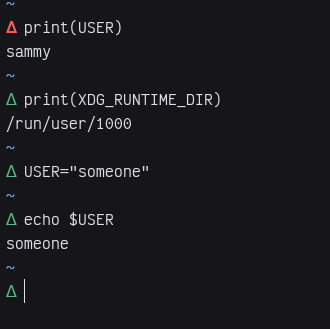What is the global table in Hilbish? If its __index metamethod is
redefined (as a function) then the runtime will try to call it when it
retrieves the value of n, as n is short for _G["n"]. If you do that
100 million times, youi will create 10 billion terminations, which will
make the go GC busy. But that's an interesting point, in the past I added
object pools for continuations and register sets because the Go runtime was
spending a lot of time garbage collecting those. Perhaps a similar
approach could be taken with terminations.
EDIT: to check my theory is right, you can declare n as local. This should make it fast again.
EDIT 2: 100 million -> 10 billion
On Tue, 19 Dec 2023 at 01:49, sammyette @.***> wrote:
i'm not sure how to title this or to properly report this.
n = 0; while n < 10000000000 do n = n + 1 end running this sample of code in hilbish (which in reality just uses golua) and I get this:
for some reason, this doesn't happen in golua-repl
— Reply to this email directly, view it on GitHub https://github.com/arnodel/golua/issues/101, or unsubscribe https://github.com/notifications/unsubscribe-auth/AAMJKOLKM2KU3P2XNRV4L5TYKDXCNAVCNFSM6AAAAABA2NIW3KVHI2DSMVQWIX3LMV43ASLTON2WKOZSGA2DONZXGI2DKOA . You are receiving this because you are subscribed to this thread.Message ID: @.***>

i'm not sure how to title this or to properly report this.
n = 0; while n < 10000000000 do n = n + 1 endrunning this sample of code in hilbish (which in reality just uses golua) and I get this:for some reason, this doesn't happen in golua-repl